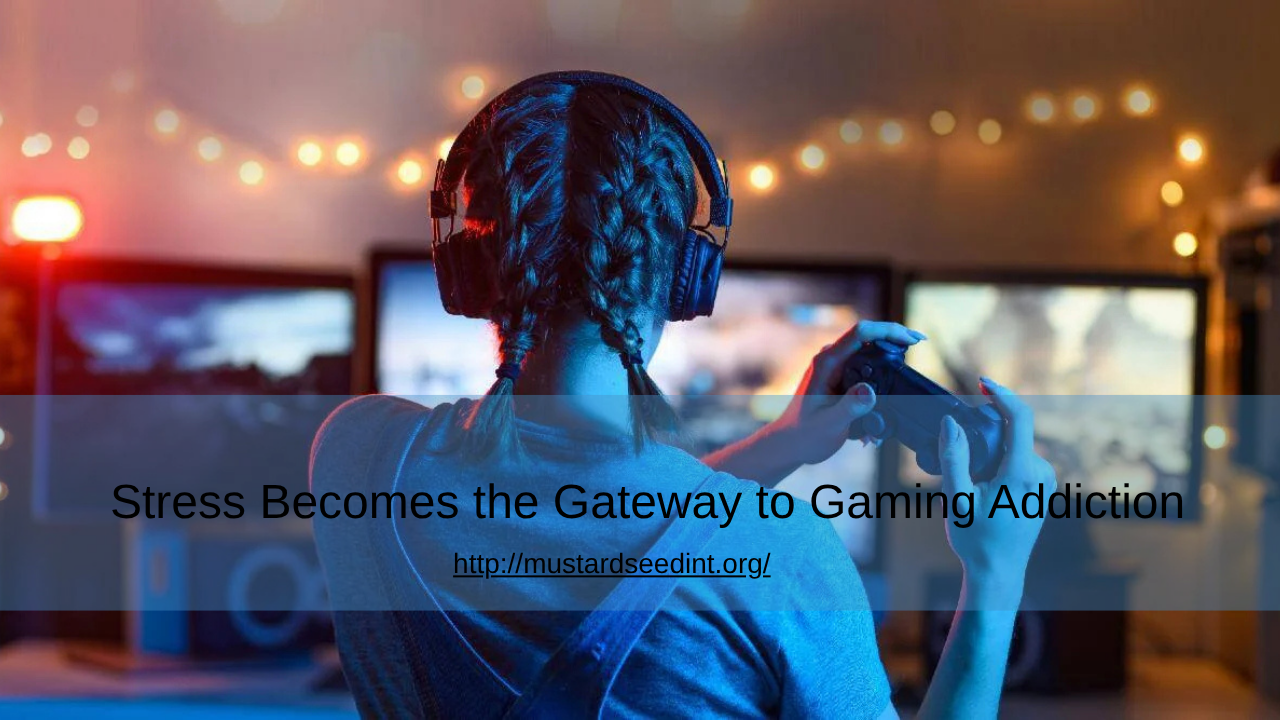 At first, gaming can feel like the perfect escape. After a stressful day, a few hours in a virtual world can offer relief, distraction, and even joy. But when gaming becomes the main way to manage emotions or avoid reality, what once felt like freedom can quietly turn into entrapment. The line between healthy entertainment and harmful dependence is often crossed when stress becomes the driving force behind play. Understanding how stress fuels gaming addiction is essential for recognizing the warning signs and finding the path back to balance.
At first, gaming can feel like the perfect escape. After a stressful day, a few hours in a virtual world can offer relief, distraction, and even joy. But when gaming becomes the main way to manage emotions or avoid reality, what once felt like freedom can quietly turn into entrapment. The line between healthy entertainment and harmful dependence is often crossed when stress becomes the driving force behind play. Understanding how stress fuels gaming addiction is essential for recognizing the warning signs and finding the path back to balance.
At Mustard Seed International, we understand that addiction is never just about the behavior itself. It often stems from deeper emotional struggles. Our holistic and faith-based approach to recovery helps individuals heal not only from the symptoms of addiction but also from the underlying pain that drives it.
How Stress Becomes the Gateway to Gaming Addiction
Stress is a natural part of life, but for many, it can feel relentless. Work pressures, family responsibilities, and emotional struggles can take a toll. In these moments, gaming often becomes a way to cope. It offers a sense of control, achievement, and community that real life may not always provide.
However, the brain’s reward system plays a key role in turning this relief into dependency. Each gaming achievement releases dopamine—a neurotransmitter linked to pleasure and motivation. Over time, the brain begins to associate gaming with emotional relief. What starts as a temporary escape from stress slowly evolves into a habitual need to play, even when it begins to interfere with daily responsibilities, relationships, and overall well-being.
Recognizing the Signs of Stress-Driven Gaming Addiction
Gaming addiction often develops gradually. What begins as “just a few hours” can turn into entire evenings or weekends spent online. Common signs that stress may be fueling gaming dependency include:
-
Using gaming as emotional escape: Playing to avoid stress, sadness, or anxiety.
-
Neglecting daily routines: Ignoring work, studies, or relationships in favor of gaming.
-
Loss of time awareness: Spending more hours than intended in front of the screen.
-
Irritability or restlessness: Feeling anxious or agitated when unable to play.
-
Decline in mental or physical health: Poor sleep, unhealthy eating, or social withdrawal.
These behaviors are not simply signs of a “bad habit.” They often point to an emotional imbalance that needs care, understanding, and professional support.
The Emotional Toll of Gaming Dependency
Gaming can feel like a refuge for those overwhelmed by stress, but dependency often deepens emotional struggles rather than resolves them. Instead of reducing anxiety or depression, excessive gaming may amplify feelings of guilt, isolation, and low self-worth. The temporary escape becomes a cycle of avoidance, where real-life stressors remain unaddressed and continue to grow.
At Mustard Seed International, our integrated treatment model recognizes that emotional pain often lies at the heart of addiction. Through counseling, therapy, and faith-based support, we help clients explore their emotions safely, rediscover purpose, and learn healthier ways to cope with life’s pressures.
Breaking Free: Restoring Balance and Resilience
Recovery from gaming addiction is not about quitting cold turkey; it’s about creating balance. Healing begins with awareness and practical steps that build emotional strength and resilience. Some helpful strategies include:
-
Stress management techniques: Practicing mindfulness, deep breathing, or prayer can calm the mind and reduce the urge to escape.
-
Structured routines: Setting clear gaming limits and establishing a balanced daily schedule.
-
Physical activity: Exercise helps regulate mood and release natural endorphins that counter stress.
-
Therapeutic support: Counseling or group therapy offers guidance and accountability.
-
Faith-based renewal: Reconnecting with spiritual values provides hope, purpose, and strength during recovery.
These approaches work best when integrated into a supportive environment where emotional healing and spiritual growth are equally valued.
Escaping Stress Through Healing, Not Hiding
Gaming addiction often begins as a form of relief but can quietly become a trap that deepens emotional pain. The good news is that healing is always possible. With compassionate, individualized care, anyone can rediscover balance, purpose, and peace.
At Mustard Seed International, we help individuals move from escapism to empowerment by addressing the emotional roots of addiction through holistic and faith-based recovery programs. If you or someone you love feels trapped in a cycle of stress and gaming, it’s time to take the first step toward freedom and healing.
Reach out to Mustard Seed International today to begin your journey toward lasting recovery and renewed emotional strength.